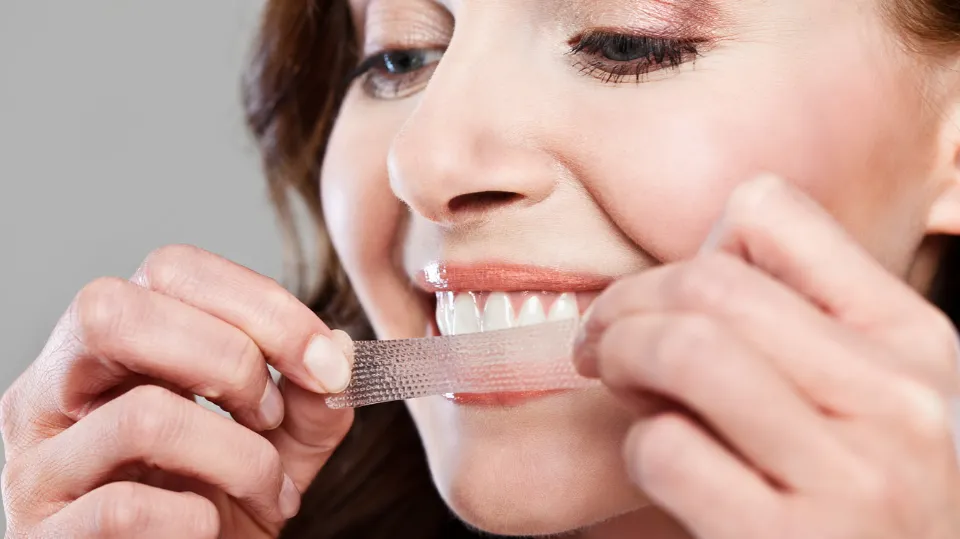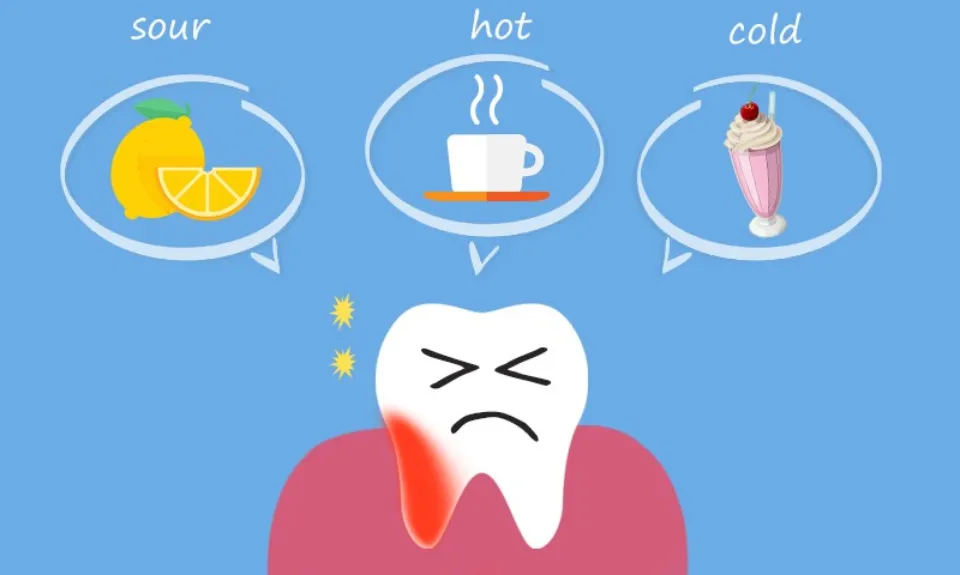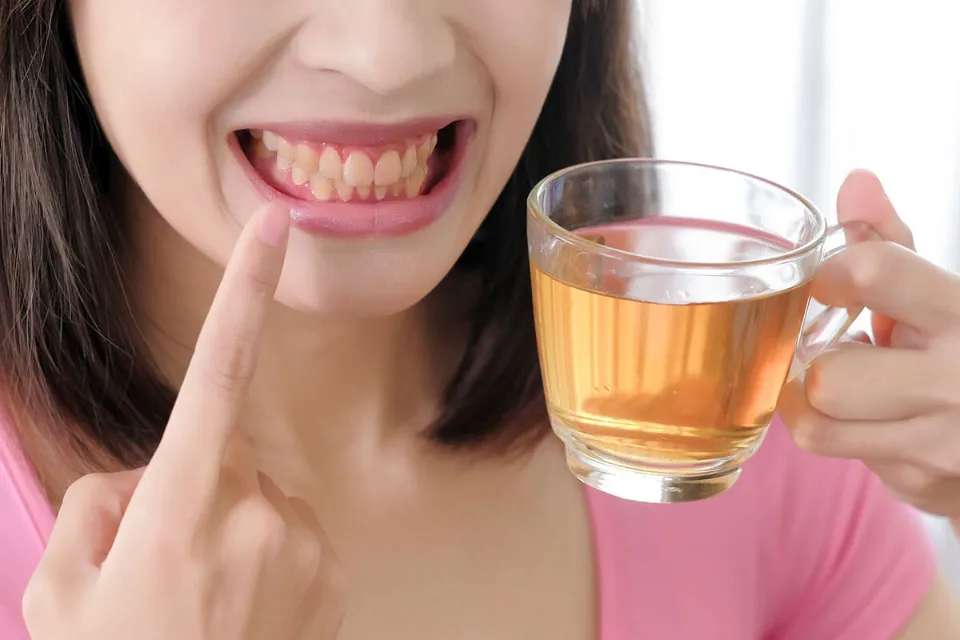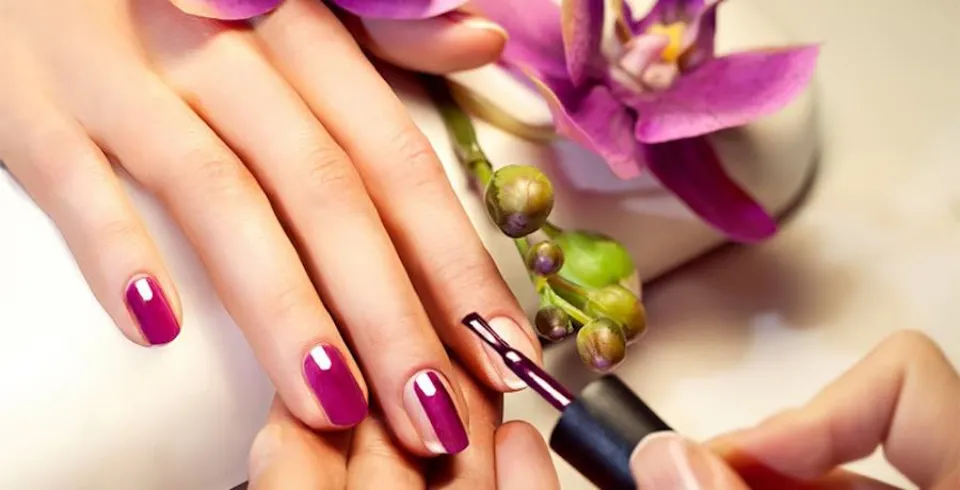These days, using whitening strips is one of the most common ways to brighten teeth. You might be wondering are whitening strips bad for your teeth.
It can whiten their teeth without experiencing damage or sensitivity. But whitening strips that contain bleaching ingredients like hydrogen peroxide can cause damage to your teeth, both to the enamel, and as newer studies are finding, also to the dentin beneath the enamel.
We know this can be a bit confusing and contradictory, which is why in this article we’ll talk all about the pros and cons of whitening with white strips, and some of the science behind it.
What Are Whitening Strips?
Over-the-counter teeth whitening strips are thin pieces of plastic that are slathered with whitening gel. The active and inactive ingredients in whitening strips can include:
- Hydrogen Peroxide – The active ingredient that whitens tooth enamel
- Sodium Hydroxide – A type of stain remover
- Polyvinylpyrrolidone (PVP) – Protects enamel from new stains
- Glycerin & Hydroxypropylcellulose – Helps to stick strips to teeth and keeps them in place
According to the product instructions, patients apply the strips to both their upper and lower teeth for the specified period of time.
Surface stains can be eliminated with these strips in as little as two weeks. However, whitening strips won’t help whiten your teeth if the discoloration is deep within the tooth.
Related Post:
Are Whitening Strips Bad for Your Teeth?

As there may be several factors at play, there is no one correct response to this. For the most part, the proper use of whitening strips is safe for most people.
Strips can harm teeth if usage guidelines are not followed, they are left on too long, or they are applied too frequently. Why?
Hydrogen peroxide’s active component can harm enamel if improperly used, in addition to its ability to whiten teeth.
If your whitening strips contain chlorine dioxide is something else to think about. This ingredient will remove tooth enamel, along with stains, but the removal of enamel is dangerous and can result in unwanted side effects.
Because the damage to enamel is permanent, stay away from products containing this ingredient.
Related Post: Do Whitening Strips Work?
Whitening Strips Pros and Cons
Let’s go over some of the advantages and disadvantages of white strips to review what we’ve covered in this article.
Pros of Whitening Strips
Whitening strips have been proven effective, and in some instances, the difference between at-home strips and at-home bleaching techniques prescribed to patients by dentists could not be seen with the naked eye.
In addition to being more practical, simple to use, and affordable than other whitening procedures are white strips.
Cons of Whitening Strips
Extrinsic stains, or those that are on the surface of the tooth enamel, such as those caused by the foods we eat, tobacco use, or pigments left by the bacteria in your biofilm and plaque, cannot be removed by white strips.
Medications like tetracycline or fluoride, dental trauma, or the degeneration of a tooth’s nerves can all result in intrinsic stains, which come from within the tissue of the tooth itself.
Prolonged use of white strips or the use of strips with high concentrations of hydrogen peroxide can damage tooth enamel and dentin.
Side Effects of Whitening Strips

While most whitening strips are safe to use if the directions are followed properly, there can still be side effects.
Increased tooth sensitivity is one of the most frequently mentioned adverse effects of using whitening strips.
When eating or drinking something hot or cold, tooth sensitivity can cause brief zings of pain or discomfort, which can be uncomfortable.
Tips for Using Whitening Strips
When it comes to whitening your teeth at home using whitening strips, there are some rules you need to follow:
- If the directions don’t say to, wait a few minutes before brushing your teeth after using whitening strips.
- Use whitening strips only as often as advised on the product’s packaging.
- Never use whitening strips for longer than recommended. Your teeth won’t become whiter; on the contrary, damage is more likely.
- Use only non-chlorine dioxide containing strips.
- Use only strips that contain no more than 14% hydrogen peroxide.
Conclusion: Are Whitening Strips Bad for Your Teeth
Teeth-whitening strips are generally safe, but it’s important to use them following the instructions. Don’t leave white strips in for too long, as this won’t whiten your teeth more, but instead could end up harming your teeth.
Make sure your whitening strips don’t have a hydrogen peroxide concentration that is too high—generally no more than 14%—as this can harm the enamel and dentin and cause sensitivity and pain.
Additionally, avoid white strips that contain chlorine dioxide as this can actually dissolve the enamel on your teeth.
Read More:
FAQs
Are Whitening Strips Bad for Your Gums?
While it might not be as intense as the gels used by dentists, the bleaching chemical is still harsh enough to damage your gum’s soft tissue.
Do Whitening Strips Make Your Teeth Sensitive?
There is hydrogen peroxide or carbamide peroxide in all whitening products. The amount varies between at-home and professional treatments, but any amount can irritate your teeth and cause either temporary or long-lasting sensitivity.
Are Teeth Whitening Strips Permanent?
Both whitening strips and professional whitening procedures are not intended to be permanent.




